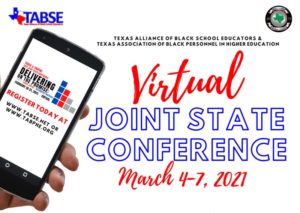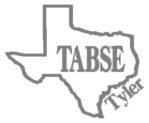
Who Should Attend: TABSE and TABPHE members, supporters, superintendents, principals, higher education administrators, school and college board members, education human resource professionals, deans, professors, education department heads, administrative/educational support staff, teachers, parents, curriculum specialists, students, clergy, employers, job seekers and any individual or organization concerned about the education of our state’s children and adult learners.
Featuring Concurrent Workshops on Important Topics:
- Leadership – Relevant issues faced by district leaders, principals, higher education administrators and aspiring leaders, including counselors and school/college board members.
Student Achievement – Curriculum alignment, instructional design, and assessment development strategies that result in improved student learning. Specifically addressing topics such as literacy, college developmental education, Science, Technology and Math (STEM). - Parent and Community Involvement – Practices that promote parental/family engagement, as well as building sustainable partnerships that benefit local communities.
- Diverse Learners – Discussion of the unique academic needs of diverse learners, including underserved students, SPED, and ELL learners. Exploration of best practices to better understand and incorporate insight into diversity on campus and in the classroom.
- Higher Education Connection – Addressing issues that pertain to higher education personnel and students obtaining undergraduate and advanced degrees and those aspiring to work in higher education.
- Higher Education/RESEARCH – Researchers may present their discoveries and general research on topics relevant in higher education.
- College, Career & Military Readiness – Addressing issues that relate to college access and job attainment, including ACT/SAT success, advanced placement, and military opportunities for minority students.
- Educational Technology – Sessions will explore successful and/or innovative tools to enhance student and professional learning.
- Discipline/CULTURAL RESPONSIVENESS/RESTORATIVE PRACTICE – Special strand to explore specific strategies that will help educators address guidance and management for students of African descent.
